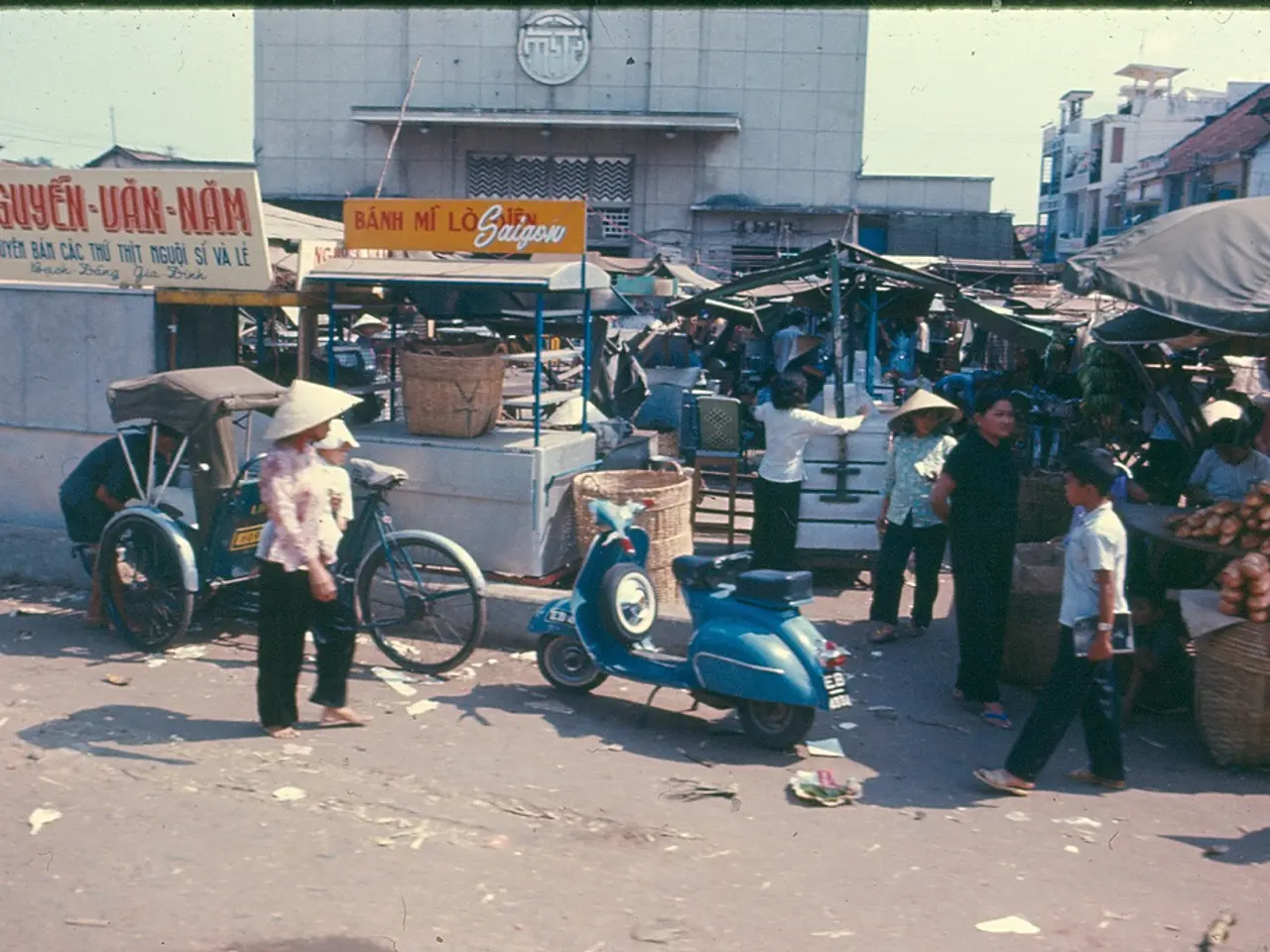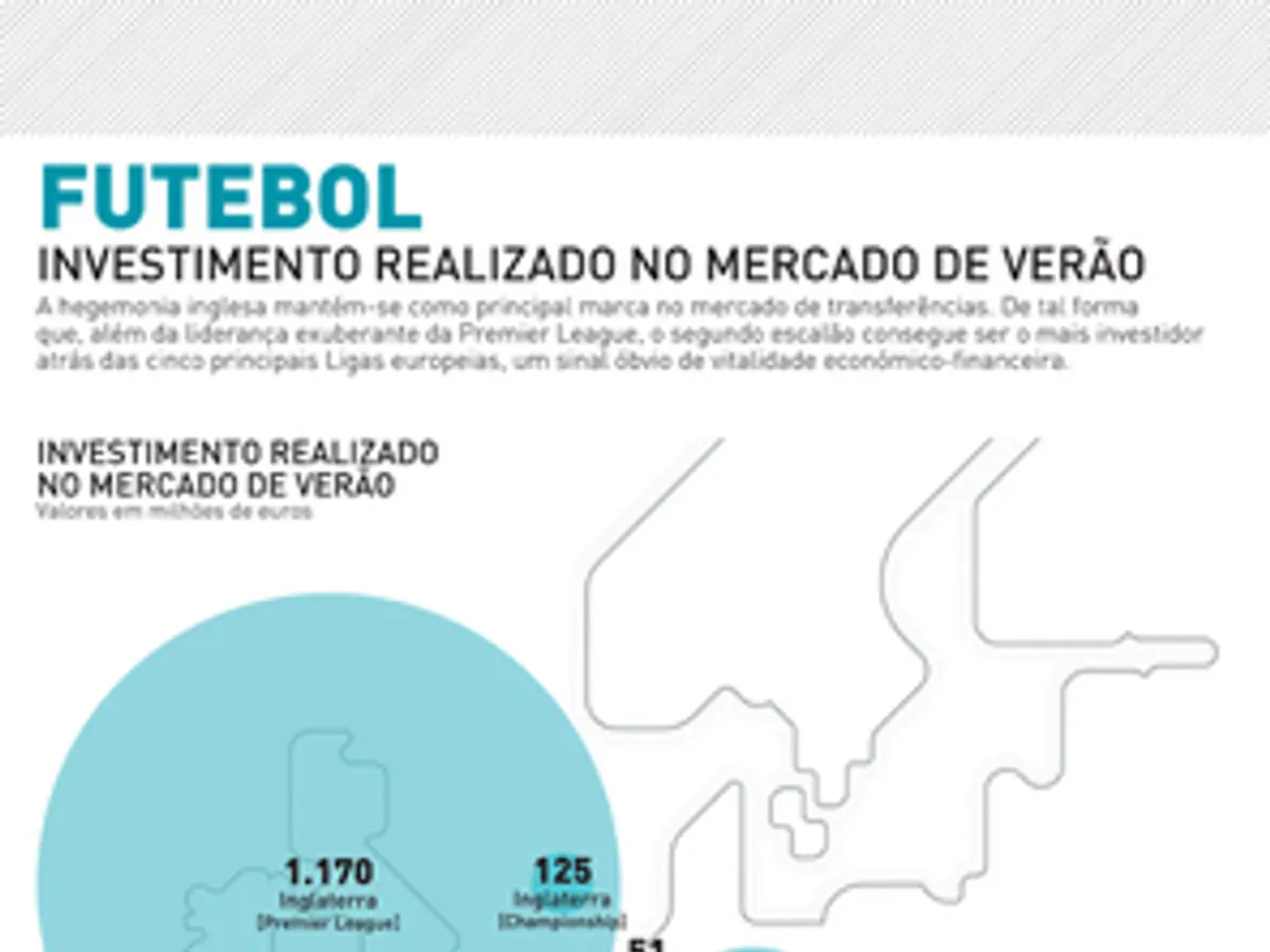Potential methods Trump's actions may unwittingly boost WTO influence
Revamped Take on the WTO: Navigating the Global Trade Storm
The World Trade Organization (WTO), the global policeman of fair trade, is currently riding a rollercoaster. U.S. President Donald Trump, with his tariff barrage, consistently clashes with this order, with the most pronounced example being China, where U.S. so-called reciprocal tariffs soar as high as 145%. China hasn't exactly rolled over. While the media spotlight has been on China's 125% counter-tariffs, less attention has been paid to Beijing's WTO complaints.
Kicking off the complaints was in February, when the U.S. imposed a 10% tariff on Chinese imports. Trump justified this by citing national security, allegedly threatened by Chinese production and export of the drug fentanyl. Beijing denies this, accusing U.S. measures of WTO rule violations and even more so the subsequent reciprocal tariffs. The second complaint to the WTO arbitration tribunal came in April.
WTO Rule Violations, According to Experts
Cyrus de la Rubia, chief economist at Hamburg Commercial Bank (HCOB) and global trade authority, is confident that China is in the right. "I doubt that the U.S. tariffs comply with WTO rules," he asserts. For instance, tariffs go against the Most Favored Nation principle, one of the WTO's bedrocks. This principle dictates that countries must not discriminate based on tariffs, permissible exceptions only within the framework of trade agreements. Furthermore, if agreed-upon tariff rates are increased, WTO authorization is mandated, something Trump disregards.
Despite rule breaches, the U.S. faces minimal repercussions. If the WTO arbitration tribunal discovers a violation, counter-tariffs are allowed to the extent of economic harm sustained. However, China has already counterpunched with retaliatory measures. Alternatively, the U.S. would have to lift tariffs again. Regardless, the United States could appeal such a decision, slowing proceedings.
Criticism of Subsidies and Arbitration Issues
The WTO Appellate Body has been incapacitated since 2019 due to U.S. impediments in appointing new judges, leaving the panel understaffed. The U.S. lambasts the WTO for inadequate action against Beijing's subsidies and dumping prices.
De la Rubia believes that the WTO rules need updating in several areas, including the arbitration tribunal and the elimination of the need for unanimous agreement among members, as is the case in the EU with its 27 members. The WTO itself acknowledges the need for reform, but progress is slow due to conflicting member views.
Reflections on the WTO's Relevance
Melanie Hoffmann, customs expert at Germany Trade & Invest (GTAI), considers the WTO indispensable for global trade. "The WTO's rule structure is outdated, but that doesn't mean it's all bad," she says. According to the WTO, about three-quarters of global trade in goods transpires under its rules, though this was 80% before the tariff conflict and could drop further.
The global trade crisis instigated by Trump could potentially augment the WTO's role in the long term. "There's a chance the WTO could regain prominence in the medium term due to the tariff conflict," says de la Rubia. "Getting China to agree to tightening rules against anti-dumping measures and subsidies is challenging, but if a global recession arises due to U.S. tariffs, China's consent to engage in dialogue may increase. Crises can always catalyze reform."
Outdated Rules and the Future of U.S.-WTO Relations
WTO Director-General Ngozi Okonjo-Iweala echoes this sentiment. "In light of this crisis, WTO members have a unique opportunity to revive the organization, create a level playing field, streamline decision-making, and adapt our agreements to better reflect today's global realities," she said during the presentation of the organization's World Trade Outlook in mid-April. Many rules date back to post-war times.
Another crucial question is how the U.S.-WTO relationship will evolve. Unlike the World Health Organization (WHO), Trump has yet to announce a withdrawal, but has halted payments and is reviewing its membership. De la Rubia argues that it might be preferable for the WTO under this U.S. administration if the U.S. departed. "Better a WTO without than with the United States, which may seek to destroy the organization from within."
However, he doubts the U.S. will take this step. Eric Robertsen, chief economist at Standard Chartered, concurs. "There are individuals within the Trump administration, such as Treasury Secretary Steven Mnuchin, who understand how essential multilateral organizations are for the U.S."
The U.S., being the largest contributor to the WTO, supplying around 11% of its budget, has effectively stopped funding. Yet, as the organization doesn't provide loans or aid money, it can likely withstand this loss better than, say, the World Bank if the U.S. were to leave. Still, the situation isn't leaving the WTO unscathed. Reuters reports, citing sources, that staff costs are to be reduced.
As long as the WTO is working on its reforms, the international community is not sitting idly by. In response to the blocked arbitration tribunal, a new one has been instituted. Set up by 47 WTO members in 2020, this one cannot impose judgments on non-members like the USA. "The newly established arbitration tribunal MPIA is a smart way to settle disputes in global trade," de la Rubia concludes.
Trade agreements are becoming increasingly important due to the WTO's struggles. "We're witnessing a trend towards bilateral agreements, as these are easier to negotiate than agreements between all WTO members," says Hoffmann. This trend might gain momentum because of the tariff conflict. The EU is keen to conclude a free trade agreement with India this year. Should this happen, it would constitute the largest of its kind in the world, according to EU Commission President Ursula von der Leyen.
- The financial implications of the U.S.-China trade dispute extend beyond industry and business, affecting the broader realm of politics and general news as well.
- Cyrus de la Rubia, a global trade authority, contends that the U.S. tariffs on Chinese imports could potentially violate WTO rules, particularly the Most Favored Nation principle.
- The WTO's relevance in global finance and business is a subject of reflection, with experts like Melanie Hoffmann considering it indispensable despite the outdated nature of some of its rules.








